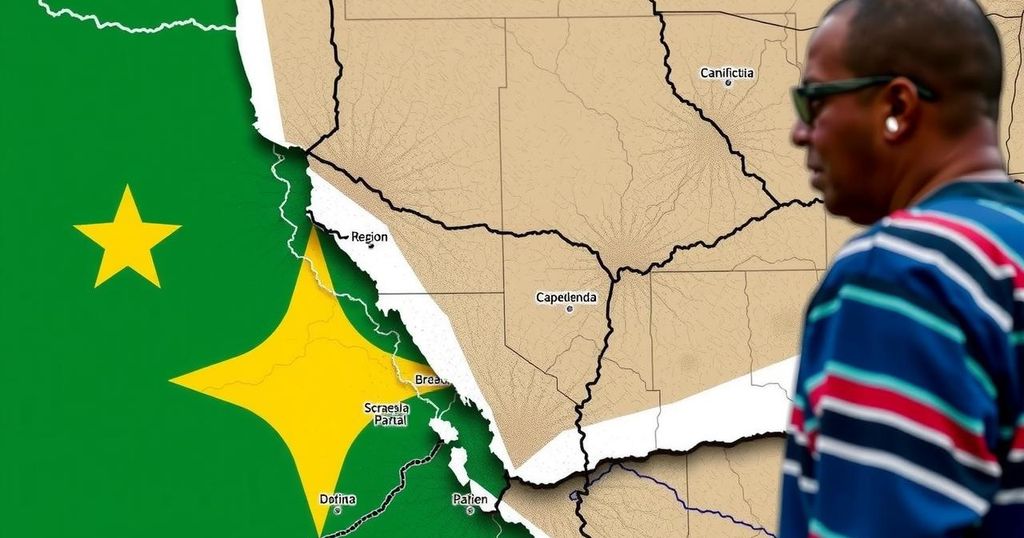World news
ABD, ABDIRAHMAN ALE, ABDIRAHMAN ALEELI, ABDIRAHMAN MOHAMED ABDULLAHI, AFRICA, CIVIC ENGAGEMENT, CURRENT EVENTS, ELECTION, GOVERNANCE, HARGEISA, HORN OF AFRICA, MO, MUSE BIHI ABDI, PRESIDENTIAL ELECTION, PRESIDENTIAL ELECTIONS, SOMALIA, SOMALILAND, SOMALILAND SOMALILAND
Marisol Gonzalez
0 Comments
Voting Underway in Somaliland’s 2024 Presidential Election
Voting is underway in Somaliland for the 2024 presidential election, which had been delayed for two years amidst regional political tensions. Over a million voters are expected to participate, with the incumbent Muse Bihi Abdi seeking re-election against challengers who focus on democratic reforms and economic priorities. Somaliland’s prior independence from Somalia since 1991 continues to shape its political dynamics as it strives for international recognition.
On November 13, 2024, voting commenced in Somaliland for a significant presidential election, marking the region’s fourth such electoral event. This election had been postponed for a period of two years, unfolding amidst growing political tensions in the Horn of Africa. The expectation is that over one million voters will participate across more than 2,000 polling stations, with an international observer presence of around 28 individuals to oversee the proceedings. The incumbent president, Muse Bihi Abdi of the ruling Kulmiye Party, is vying for a second consecutive term after a seven-year tenure focused on advocating for Somaliland’s international recognition. His main opponent, Abdirahman Mohamed Abdullahi of the Waddani Party, is emphasizing democratic reforms and social unity in his campaign. Additionally, Faisal Ali Warabe of the Justice and Welfare Party is promoting the idea of a national unity government. Voter enthusiasm is reflected in the presence of individuals displaying the Somaliland flag and expressing hopes for economic improvement and job creation. Somaliland has functioned independently since its declaration of independence from Somalia in 1991, despite lacking international legitimacy. Over the years, this region has developed its government, currency, and security mechanisms, providing a stark contrast to the ongoing challenges faced by Somalia in terms of instability and conflict. The local government’s decision to delay the election in 2022 was influenced by economic difficulties, highlighting the intricate relationship between governance and socio-economic factors in the region. The recent agreement between Somaliland and Ethiopia, which allows Somaliland access to the Indian Ocean, has stirred political strife with Somalia, leading to accusations that Ethiopia is infringing upon Somalia’s territorial integrity. Observers are closely monitoring the electoral process in light of these challenges, which could potentially signal shifts in political dynamics within the region.
Somaliland, a self-declared independent region, separated from Somalia in 1991 amid civil conflicts and has since established a functional governance system. Although the international community does not officially recognize Somaliland’s sovereignty, the region has successfully maintained political stability and lowered instances of insecurity compared to its counterpart, Somalia. The announcement to postpone the presidential election in 2022 due to economic hardships reflects the delicate balance Somaliland must maintain between governance and public expectations.
The 2024 presidential election in Somaliland represents a critical moment for the region as it navigates both domestic demands for economic stability and growing political tensions with Somalia and Ethiopia. The diverse platforms of the candidates highlight the ongoing aspirations for democratic reform and economic development. As Somaliland continues to pursue international recognition while maintaining an internally stable political framework, the outcome of this election may significantly influence its trajectory moving forward.
Original Source: apnews.com




Post Comment